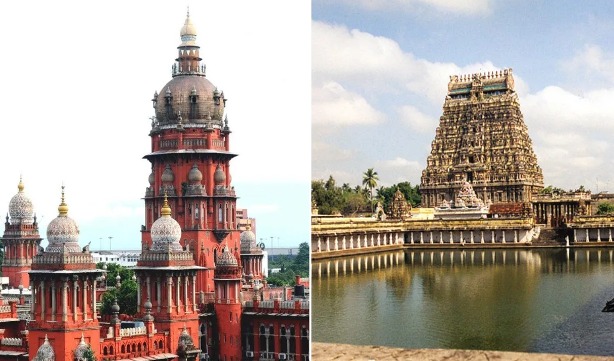
The Madras High Court recently stated that the temple deity was to be considered a minor, and that any delay in freeing such land will amount to infringement of the rights of the minor deity.
A single bench of Justice SM Subramaniam passed the order while directing local authorities to clear encroachers from a temple property in Kancheepuram district.
The bench stated that the land grabbers’ attempts to encroach on temple property and profit from it were “intolerable” and needed to be addressed immediately.
“The land grabber’s attempt to take away the temple land in any form is intolerable. Any litigious occupation of the temple property, which is more valuable and causing loss to the temple, are to be dealt with appropriately without any loss of time. Loss of time would result in infringement of the right of a Deity, who is a minor,” the order reads.
The bench was hearing a batch of pleas filed by 20 petitioners, all of whom claimed to be agricultural cultivators and were challenging the respondent temple’s eviction proceedings against them.
The petitioners were members of an agricultural co-operative society, which had signed a lease with the temple in 1969. The temple land was to be used for agricultural cultivation by the members of the society, according to the agreement.
Despite the fact that the lease expired in 1981, the petitioners continued to occupy the land and also defaulted on the rent owed to the society. Following the liquidation of the society, a local revenue court issued an eviction order against the petitioners in 2012. The revenue court also ordered them to pay rent arrears totaling more than ₹50 lakh.
Advocate A Palaniappan, who appeared on behalf of the petitioners, argued before the High Court that they had not been given a fair hearing as required by the Tamil Nadu Public Trust Act of 1961.
The respondent counsel contended that the petitioners lacked locus standi to bring the Public Trust Act provisions against the temple because the subject property belonged to the temple and there was no agreement between the temple and the petitioners.
The bench noted that the majority of the petitioners had stopped cultivating agricultural produce on the said land years ago and were instead subletting the land to third parties for commercial gain.
Therefore, dismissing the plea, the single bench stated,
“This court is of the considered opinion that the cases on hand are classic cases, where under the guise of the membership of the third respondent-Society, the writ petitioners are attempting to continue in the temple property without any authority and in the absence of any tenancy agreement. The cultivating activities also are not being done. Even as per the respondent temple, the petitioners have started subletting the property for commercial purposes and earning huge money for personal gains, which is unjust and illegal.”




